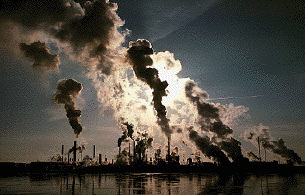House Committee Passes Spending Bill That Slashes Funding For Conservation And Oceans
 The House Republican “oil above all” agenda has a new home in the fiscal year 2013 appropriations bill for the Department of the Interior and the Environmental Protection Agency.
The House Republican “oil above all” agenda has a new home in the fiscal year 2013 appropriations bill for the Department of the Interior and the Environmental Protection Agency.Today the House Appropriations Committee passed a spending bill that would slash funds to enforce pollution laws and protect public lands, oceans, and wildlife. It also contains a number of policy provisions that have nothing to do with spending that would block enforcement of existing environmental laws, threaten our health, and harm our lands.
Congressman Jim Moran (D-VA) raised grave concerns about the bill yesterday:
Literally, the quality of the air we breathe and the water we drink depends on programs funded by this bill. Millions of Americans make their vacation plans based on their ability to enjoy the natural, scenic, recreational, and cultural resources whose protection is funded by this bill…. The deep funding cuts necessitated … as well as the various special interest riders and funding limitations that were included in the subcommittee bill, would cause real harm to the environment and to efforts to preserve America’s natural and cultural heritage.,
The biggest issues revolve around the levels of funding that various agencies will be facing under this bill. For example, it would slash EPA’s budget by nearly 20 percent, including a 10 percent cut to clean air and climate programs. Additionally, EPA would see a 9 percent cut in enforcement under this bill, which is like taking 1 of every 10 cops off the beat when it comes to enforcing air, water, and toxics safeguards. And state enforcement of pollution reduction laws in the Clean Air Act and the Clean Water Act will be more difficult, because 28 percent of this funding compared to 2012 will be slashed – more than $1 billion.
Critical conservation programs managed by the Department of Interior also face severe funding reductions. Most surprisingly, the popular Land and Water Conservation Fund Program that enjoys bipartisan support was cut by nearly 80 percent compared to the current year to only $66 million — the lowest levels in its nearly 50-year history. This program does not require any new federal spending; rather, it uses receipts from offshore oil and gas development to fund repairs and other projects in our national parks, wildlife refuges, and local parks.
In addition to these crippling funding cuts, the bill includes a number of harmful policy riders that would block implementation and enforcement of existing laws and programs. The bill would:
- Prevent implementation of the Cross-State Air Pollution rule, which would reduce smog and acid rain pollution from upwind states that plague downwind states
- Block the new greenhouse gas New Source Performance Standards rule, designed to clean up carbon pollution at new power plants
- Strip states of their ability to manage their ocean space the way they see fit by blocking the National Ocean Policy
During debate over the bill yesterday and today, members rejected a number of opportunities to make the bill less egregious. Instead, they attached additional provisions to further roll back pollution reductions, land protection, and job creation. Amendments included:
- Rep. Jim Moran (D-VA): Strike all anti-environment policy riders and funding limitations (failed 19-28)
- Moran: Increase oil and gas inspection fees and increase funding for national wildlife refuges (failed 20-27)
- Rep. Norm Dicks (D-WA): Strike the provision that cuts off funding for the National Ocean Policy (failed 20-27)
- Rep. Steven Austria (R-OH): Block EPA from setting new carbon pollution reduction standards for motor vehicles built after 2016, which would double fuel economy, slash pollution, and reduce gasoline purchases by $8,000 over the life of a 2025 vehicle (passed 26-18)
- Rep. Cynthia Lummis (R-WY): Prohibition on funds to establish industrial carbon pollution standards for stationary sources, including existing power plants and oil refineries (passed 27-18)
Taken together, slashing vital programs and blocking implementation of others would allow more air pollution, land desecration, and ocean contamination. These provisions would harm children, seniors, wild places, and clean water. But they would benefit Big Oil and coal by reducing enforcement and blocking new pollution reductions.
You can return to the main Market News page, or press the Back button on your browser.

